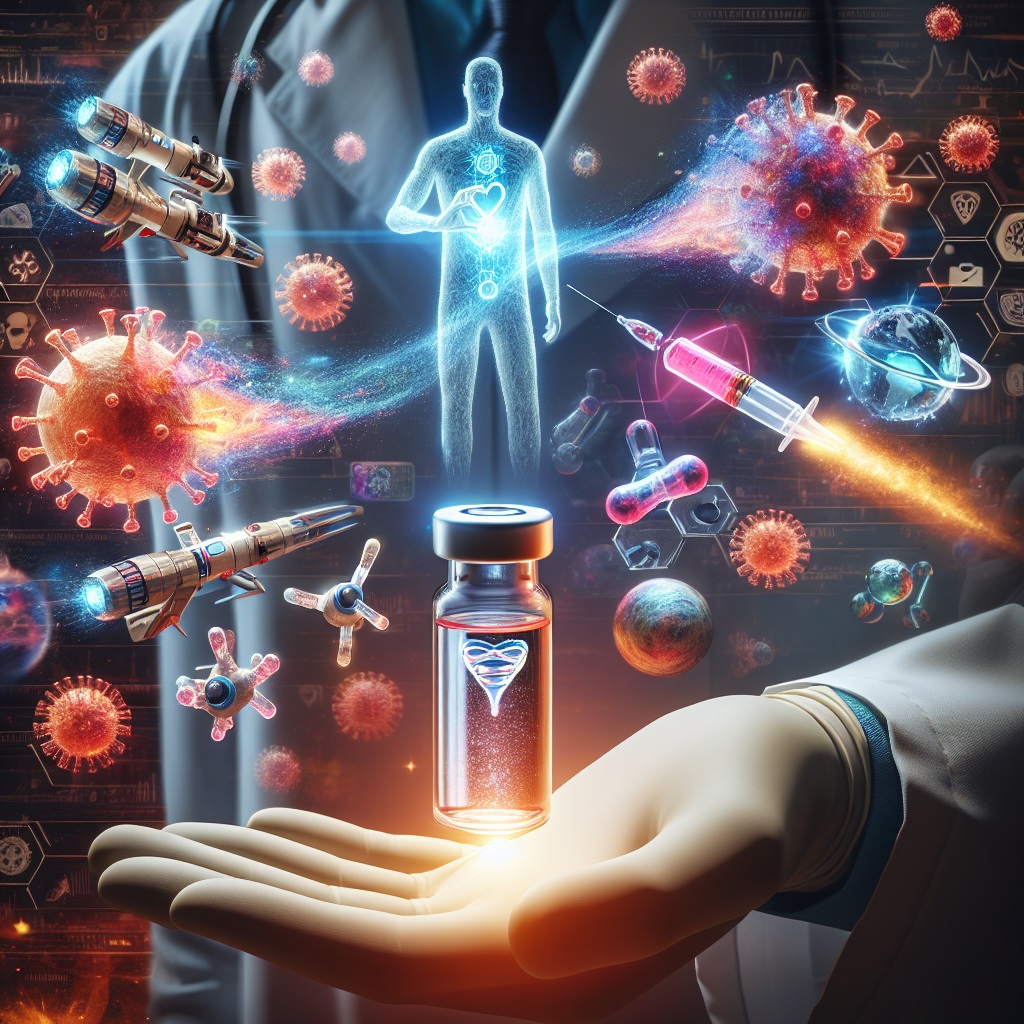The battle against infectious diseases has been an ongoing struggle for humanity, but recent scientific advances offer new hope. This blog post will explore the latest breakthroughs in treating and curing infectious diseases like tuberculosis, malaria, and HIV. Whether you’re a healthcare professional, a medical researcher, or simply someone interested in the field, you’ll find valuable insights and exciting developments that could reshape the future of medicine.
The Persistent Challenge of Infectious Diseases
Infectious diseases have plagued humanity for centuries, causing millions of deaths and significant socioeconomic disruptions. Despite advancements in medicine, diseases like tuberculosis, malaria, and HIV continue to pose substantial challenges. Yet, the scientific community is making significant headway in the fight against these ailments.
Tuberculosis: A Resilient Foe
The Global Burden of Tuberculosis
Tuberculosis (TB) remains one of the world’s deadliest infectious diseases, claiming approximately 1.4 million lives annually. Despite being curable, the disease’s persistence is attributed to factors like drug resistance and inadequate healthcare infrastructure in many regions.
Advancements in TB Treatment
Recent years have seen notable advancements in TB treatment options. For instance, the development of shorter, more effective drug regimens has made treatment more accessible and manageable for patients. Additionally, novel drugs like bedaquiline and delamanid have shown promise in treating multidrug-resistant TB, providing new hope for affected individuals.
The Role of Vaccines in TB Control
Vaccination remains a crucial strategy in TB control. Researchers are working on next-generation TB vaccines that offer better protection than the current BCG vaccine. Early trials of candidates like M72/AS01E have shown promising results, with potential to reduce TB’s incidence significantly.

Read More👉 Breathe Easy: Understanding Rhinitis for a Healthier Life
Malaria: A Persistent Threat
The Impact of Malaria Globally
Malaria is another formidable enemy, particularly in sub-Saharan Africa, where it causes hundreds of thousands of deaths each year. Efforts to combat malaria have faced numerous challenges, including drug resistance and limitations in vector control.
Innovations in Antimalarial Medications
In the quest to combat malaria, new antimalarial drugs are being developed and tested. Artemisinin-based combination therapies (ACTs) have been the gold standard, but resistance is emerging. Researchers are now exploring alternatives, such as tafenoquine, which provides a longer-lasting effect and targets all stages of the malaria parasite’s lifecycle.
Breakthroughs in Malaria Vaccine Development
One of the most exciting developments in malaria research is the creation of effective vaccines. The RTS,S/AS01 vaccine, also known as Mosquirix, has demonstrated moderate efficacy in large-scale trials and is being rolled out in several African countries. Researchers are also working on next-generation vaccines, aiming for higher efficacy and longer-lasting protection.
HIV/AIDS: A Modern Epidemic
The Ongoing Battle Against HIV
HIV/AIDS, a relatively recent addition to the list of deadly infectious diseases, has claimed over 32 million lives since the early 1980s. While antiretroviral therapy (ART) has transformed HIV from a death sentence into a manageable chronic condition, the search for a cure continues.
New Horizons in HIV Treatment
Advancements in HIV treatment are continually evolving. Long-acting injectable ART, such as cabotegravir and rilpivirine, offers a convenient alternative to daily pills, improving adherence and quality of life for patients. Additionally, novel drug classes, like broadly neutralizing antibodies (bNAbs), show promise in controlling the virus and preventing transmission.
The Quest for an HIV Cure
While a definitive cure for HIV remains elusive, there have been significant strides in research. The “Berlin Patient” and the “London Patient,” both cured of HIV through stem cell transplants, provide valuable insights into potential cure strategies. Researchers are investigating gene-editing technologies like CRISPR and latency-reversing agents to target and eradicate the virus from the body.

Read More👉 Battling Psoriasis Naturally and Effectively
The Role of Technology in Combating Infectious Diseases
AI and Machine Learning in Disease Surveillance
Artificial intelligence (AI) and machine learning are revolutionizing disease surveillance and control. These technologies can analyze vast amounts of data to predict outbreaks, track disease spread, and identify potential hotspots. For example, AI algorithms have been used to predict dengue fever outbreaks with remarkable accuracy, enabling timely interventions.
Genomic Sequencing and Personalized Medicine
Genomic sequencing has become a powerful tool in understanding infectious diseases at the molecular level. By sequencing the genomes of pathogens, researchers can identify genetic variations that contribute to drug resistance and virulence. This information is crucial for developing targeted therapies and personalized treatment plans for patients.
Telemedicine and Remote Healthcare
Telemedicine has gained prominence, especially during the COVID-19 pandemic, as a means to provide healthcare remotely. This technology allows patients to consult with healthcare professionals without the need for physical visits, reducing the risk of disease transmission. Telemedicine is particularly valuable in remote and underserved areas, where access to healthcare is limited.
Collaborative Efforts in Global Health
International Partnerships and Funding
The fight against infectious diseases requires collaboration on a global scale. Organizations like the World Health Organization (WHO), the Global Fund, and various non-governmental organizations (NGOs) play a pivotal role in funding research, implementing programs, and coordinating efforts to combat diseases. Public-private partnerships have also been instrumental in accelerating research and development.
Community Engagement and Education
Community engagement and education are essential components of disease control. Public awareness campaigns, vaccination drives, and health education programs empower individuals to take preventive measures and seek timely treatment. Involving communities in decision-making processes fosters a sense of ownership and ensures the sustainability of interventions.
Addressing Social Determinants of Health
Addressing the social determinants of health, such as poverty, lack of education, and inadequate sanitation, is crucial in combating infectious diseases. These factors contribute to disease transmission and hinder access to healthcare. Comprehensive strategies that address these underlying issues are essential for achieving long-term health outcomes.

Read More👉 Neck Pain and Nausea: Understanding the Complex Connection
The Future of Infectious Disease Control
Emerging Technologies and Innovations
The future of infectious disease control looks promising, with emerging technologies and innovations on the horizon. Advances in nanotechnology, for example, hold potential for targeted drug delivery and diagnostic tools. The development of universal vaccines, capable of protecting against multiple strains of a pathogen, is another exciting area of research.
Strengthening Healthcare Systems
Robust healthcare systems are the backbone of effective disease control. Investing in healthcare infrastructure, training healthcare workers, and ensuring the availability of essential medicines are critical steps in building resilient healthcare systems. Strengthening healthcare systems enables timely detection, response, and management of infectious diseases.
Promoting One Health Approach
The One Health approach recognizes the interconnectedness of human, animal, and environmental health. Zoonotic diseases, which are transmitted between animals and humans, highlight the importance of this approach. Collaborative efforts between medical, veterinary, and environmental professionals are essential for preventing and controlling zoonotic diseases.
Conclusion
Recent advances in curing infectious diseases offer a glimmer of hope in the ongoing battle against these formidable foes. From tuberculosis to malaria and HIV, scientific breakthroughs are reshaping the landscape of infectious disease control. As healthcare professionals, medical researchers, and the general public, it is crucial to stay informed about these developments and support efforts to combat infectious diseases. By leveraging technology, fostering collaboration, and addressing social determinants of health, we can work towards a healthier and disease-free future.
For those interested in further exploring these topics or seeking expert guidance, consider joining our community of healthcare professionals and researchers. Together, we can make a significant impact in the fight against infectious diseases.

